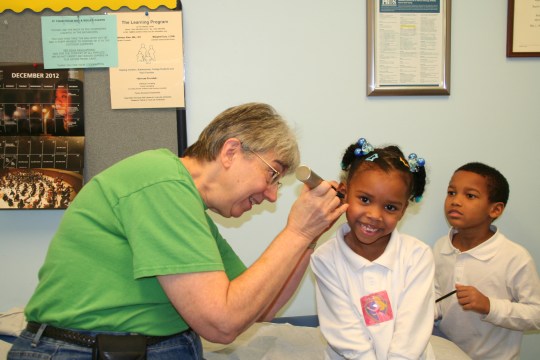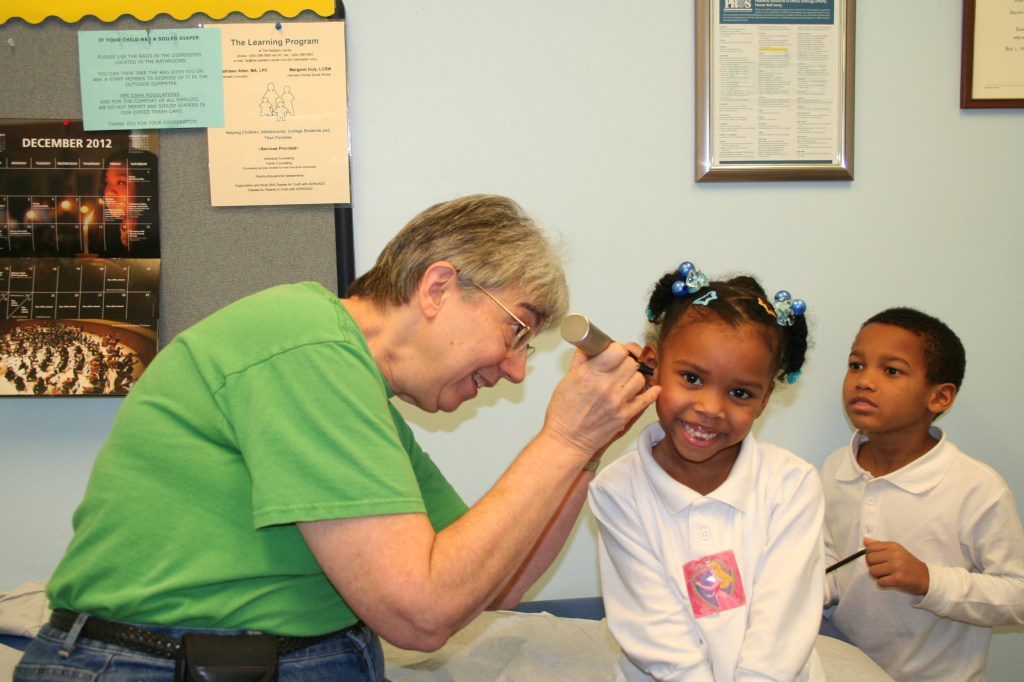
Drs. Jaquelin and Edward Gotlieb, a husband-and-wife pediatric team, have practiced in the Stone Mountain area for 36 years.
Over that time, the two pediatricians have seen their percentage of Medicaid patients rise — while the income from their practice drops.
The government Medicaid program in Georgia pays much less than Medicare, which itself pays less than private insurance. And currently, two of every three children coming to the Gotliebs’ practice are on Medicaid or PeachCare, another government program that pays a similar amount.
But starting in 2013, the Gotliebs’ financial arithmetic will begin to improve.
That’s because physician Medicaid rates will be raised next year to the Medicare payment level, the result of a little-known provision in the Affordable Care Act. For a “sick” office visit, the pay for a physician is estimated to rise from about $40 to nearly $70.
“It will help tremendously financially,’’ Jaquelin Gotlieb says.
The pay bump will mean more Medicaid reimbursement for services by family physicians, internists and pediatricians, and for vaccinations, with the extra money supplied by the federal government. The pay hike is for two years.
A survey of 1,400 physicians in Georgia found half of them do not accept new Medicaid or PeachCare patients. Pay is a major reason for those doctors’ decision. In an economy that has been weak for years, some doctors have to make hard choices to stay in business.
That, in turn, makes it harder for many low-income people to find doctors who will see them. In the overall effort to improve access to care in Georgia, low doctor pay from Medicaid has been a major obstacle.
Vocal opposition to hike
The pay hike is considered good news for doctors and patients. Yet its link to the Affordable Care Act caused some dissent last week at a meeting of the board of the state Department of Community Health. The opposition arose despite the fact that the additional reimbursement is paid for entirely with federal funds.
Jerry Dubberly, the state Medicaid chief, presented the pay raise proposal to the agency board for initial adoption of a public notice of the change.
But Community Health board member Clay Cox commented that the state had no real choice, and called the pay raise move “just disgusting.’’
Dubberly said there would be administrative costs to the state with the change. “It’s significant staffing time,’’ he said.
The initial adoption of the public notice of the pay hike was approved by the Community Health board, with Cox the only “no’’ vote.
The pay raise won’t pertain to PeachCare. Still, groups representing primary care physicians say it’s a much-needed boost.
“In rural areas, it will help sustain the practice and keep it open,’’ says Dr. Mitch Cook of Athens, president of the Georgia Academy of Family physicians.
The commissioner of Community Health, David Cook, said the pay hike may have an impact on the supply of doctors taking Medicaid patients. But Cook also said, “Physicians know this is a temporary measure.’’
He questioned whether doctors will make a long-term financial decision on expanding their Medicaid practices, given the uncertainty over the federal budget.
And Jaquelin Gotlieb notes the administrative burden that physicians deal with in treating Medicaid patients.
The pay hike “will help doctors who have the dedication to stay on Medicaid,’’ she says. “I don’t think it will attract new doctors.’’
The Medical Association of Georgia also backs the pay increase, noting that “Medicaid physicians in Georgia are paid at a rate that is less than the cost of delivering the service.”
The group cites the significant shortfall that Medicaid faces.
“It is imperative for Georgia to find a way to adequately fund the Medicaid program in a permanent and sustainable way to ensure that the state’s neediest residents have access to the medical care they need.’’
Losing money on some patients
A Lithonia internist, Dr. Clyde Watkins Jr., says he stopped seeing new Medicaid patients four years ago.
“It was purely the reimbursement,’’ says Watkins, a member of the Georgia chapter of the American College of Physicians. “It doesn’t cover the cost of delivering the service. My practice loses money when seeing Medicaid patients.”
Watkins points out that the reimbursement change will help physicians who take care of “dual eligibles’’ – people who receive both Medicaid and Medicare insurance.
He says current Medicaid reimbursement is so low that it does not cover the 20 percent co-insurance amount for dual-eligible patients. So, under current payment structure, doctors basically lose that payment.
But starting next year, Medicaid would pay that often missing 20 percent amount.
“We would no longer lose money with existing Medicaid patients,” Watkins says.
Every dollar spent now for medical care will save money in future health costs, he adds. “It will help make Georgians healthier in the future.”

